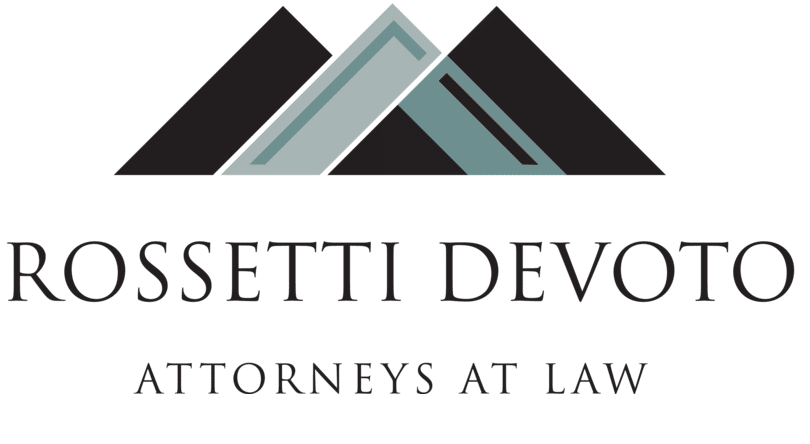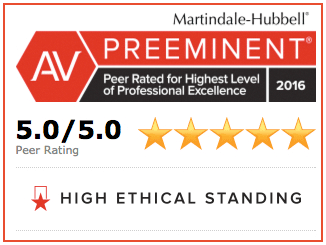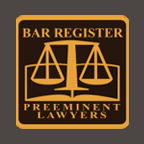Selecting a Winning Jury
Selecting a Winning Jury
Personal Injury Case Management for the Seasoned Litigator
Presented by:
Andrew J. Rossetti, Esquire
Presented for:
National Business Institute
Cherry Hill, New Jersey
November 29, 2007
I. Voir Dire in New Jersey?
Despite the importance in selecting fair and unbiased jurors, that is, a winning jury, to determine the legal disputes of its citizens, New Jersey has treated this process into one of inconvenience and annoyance.
In fact, as of January 22, 2007, Superior Court judges are required to employ the New Jersey
Supreme Court’s “standards for jury selection.” Furthermore, the standards are taken from recommendations
of the Court’s special committee on peremptory challenges and jury voir dire.
So, the Court adopted the special committee’s five new standards regarding voir dire, i.e., for the selection of a winning jury. These are:
1. Fine-tuning the general voir dire method.
2. Requiring new standard voir dire questions.
3. Encouraging supplemental questions.
4. Permitting increased attorney participation in voir dire.
5. Encouraging judges to more liberally grant challenges for cause.
In fact, the special committee did recommend a substantial reduction in preemptory challenges however the Court chose not to adopt this recommendation, but to hold it in abeyance for one year.
Attached to this document are the standards for jury selection directive as well as the standard jury questions for all civil cases, auto, slip and fall, medical malpractice, and the standard voir dire in a criminal matter for the sake of completeness. The Courts in this next year will be seeking lawyer feedback on the effectiveness on this new voir dire and now more than ever, you must get your trial organizations involved in this process, including the Trial Attorneys of New Jersey, ATLA-NJ, New Jersey State Bar Association and others. You should belong to at least one of these organizations if you are trying cases on a regular basis.
In the meantime, it is essential to keep pushing each trial judge to expand what we already have and to show how essential a good voir dire is to the outcome of a case for all litigants and how simply and economically it can be done, if done the right way.
While attorneys, judges and administrators debate over the most effective way to conduct voir dire, the experts sounded in long ago. It is almost unanimous among experts that lawyer conducted voir dire is essential to understanding jurors, and their biases and prejudices. Equally important is the fact that lawyer conducted voir dire helps ease the jurors into the case, allows them to interact with the parties before the case and to get an understanding of the case before they are thrust into opening statements knowing little or nothing about the case or the process except the one paragraph the judge has disclosed to them.
In New Jersey, the best we can probably hope for at this point is a mix of standardized judicial questions, jury questionnaires and lawyer follow-questions to standard voir dire. Below are several jury questionnaires and common pitfalls that lawyers make in utilizing questionnaires and voir dire.
II. Questionnaires for Winning Jury:
First and foremost, how to get the Judge to Approve your Jury Questionnaire:
1. Keep it simple.
2. Let the judge know ahead of time in pre-trial meetings and trial brief
3. Moreover, make it easy for the judge. (Have copies made, the pens available, clipboards).
4. Get consent from your adversary and include the adversary in questions
5. Select your test case wisely, and then use it over and over.
6. Get time to review the questionnaire before the actual voir dire.
7. Furthermore, request that the judge allow lawyer voir dire to the jury questionnaire.
Second of all, advantages to Jury Questionnaires:
1. Save time by not asking standard background questions of the entire panel.
2. Privacy – get honest feedback because answers are not in open court.
3. Allows more time for better, case-specific lawyer or judicial voir dire questions.
4. Have a better understanding of your jurors.
5. Lawyer does not have to write basic information of each juror and can concentrate on juror
Lastly, common Pitfalls in the use of Jury Questionnaires:
1. Too long and too complex.
2. Not enough time to review before jury pool brought to court room.
3. You can’t observe the potential juror and the questionnaire at the same time.
4. Tougher to digest information from a piece of paper than by listening and watching juror.
5. Judge substitutes his normal voir dire with the questionnaire and does no further inquiry.
III. The Value of Follow-Up, Lawyer Conducted Voir Dire?
In all but very few cases, I have been afforded the opportunity to ask direct follow-up voir dire questions of jurors. In Camden, Mercer and Essex Counties, Judges Mariano, Sapp-Peterson, Ferentz and Simonelli. The key is preparation.
If you prepare a comprehensive trial brief, with a case summary, voir dire questions, a witness list, exhibit list, legal issues, a case statement to be read to the jury, jury charges and all important documents and exhibits in the case, the judge will not only know and remember you as being prepared, but you will gain a competitive edge in the case. The judge will be more receptive to requests of jury questionnaires and follow-up lawyer voir dire because you will look like you know what you are talking about and will be convincing to the judge based on what the judge has already seen of your work product.
1. Ask open–ended questions; “Why do you feel that way?”
2. Stay away from conclusions; “Can you be fair?”
3. Be understanding to jurors, “I can understand how you would feel that way, but what if I told you ______, how would that make you feel?
4. Also, relate to jurors, “I once felt that way too, but what if the evidence were to show _____, how would you feel hearing the case in that scenario?
5. Furthermore, try and discover “core values and attitudes” of each juror, they are a better correlation to prediction of results than demographics, life experiences or other factors. For example, how many jurors have you left on the panel who has voted against you but had the same or similar case that you were espousing? Jurors will find reasons why their case was different because their values and attitudes ultimately result in the opinions they will form.
6. Have another attorney or paralegal or office staff with you at counsel table to handle taking notes.
7. In addition, never judge the juror for their beliefs or let the juror know you disagree with the belief. You can’t beat them into your beliefs!
8. Also, do not argue or cross-examine jurors. Be conversational, but firm with your questions and discuss issues that are present in your case.
9. Attitudes and beliefs are not a function of race, religion, age, sex or career.
10. Moreover, do not try to control or teach the jurors: “would it surprise you if I told you the law is _________”; Do you understand that _____________”.
11. Additionally, let the judge know that answers in open court rarely affect other potential jurors’ attitudes and beliefs. You don’t need a side bar for every follow-up question.
IV. Other Issues when Choosing Winning Jury:
1. Multiple defendants/plaintiffs – request additional challenges
2. Summertime jurors – (May to August) – Make a motion to strike the entire panel if it looks like the panel has any resemblance to a high school homeroom.









